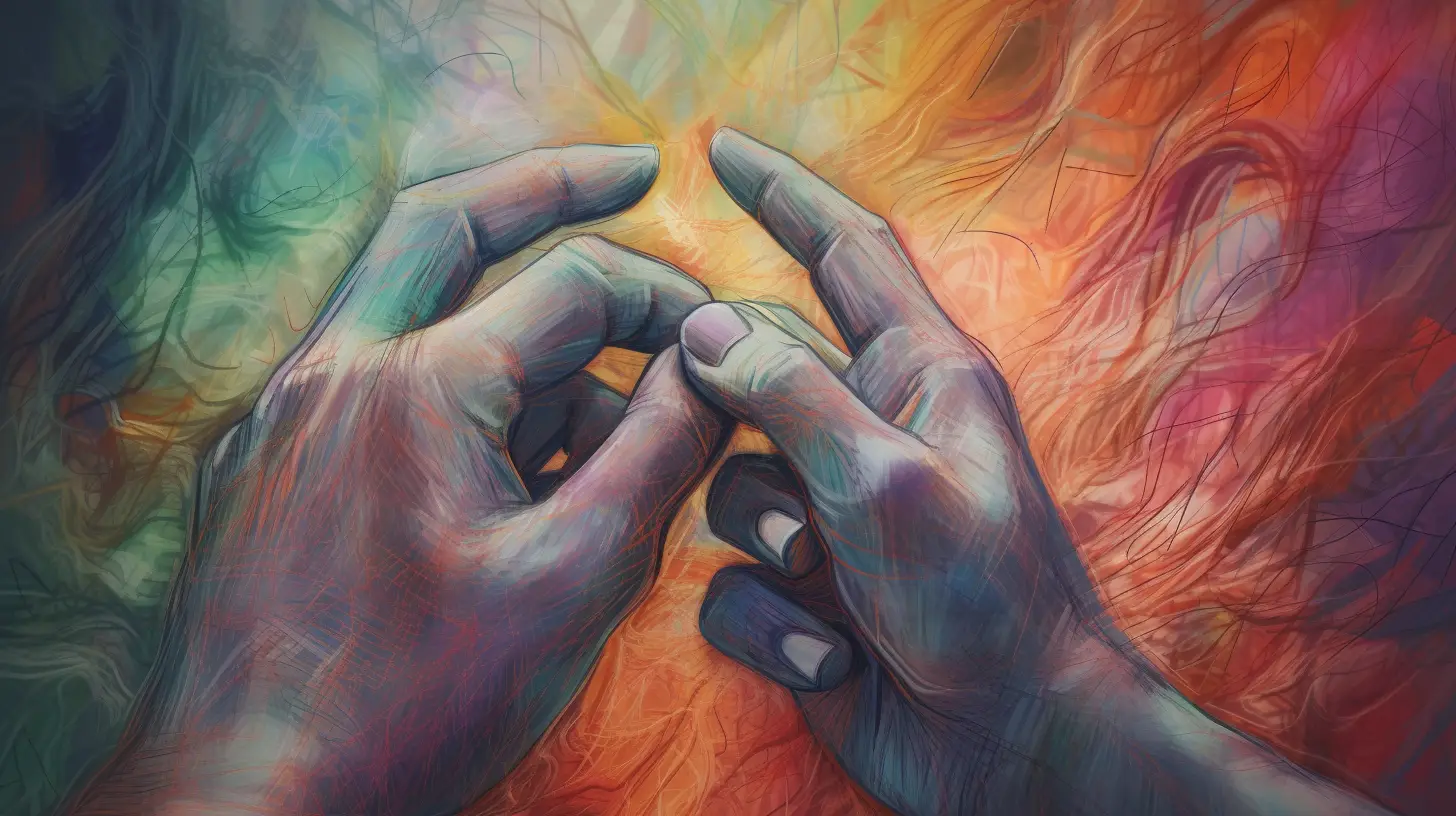Proof of work
Mustaches are cool because they show "proof of work". You need to be able to grow one, but the real challenge is that they take time to grow, including an awkward stage where all mustaches look bad. That's why a good mustache is cool as hell.
We're at a weird time, where AI art, writing, and music are slowly making many forms of creative work post-scarcity. Our most valuable resource is attention, and being able to spot proof of work is critical to avoid getting trapped by cheap signaling.
Crypto currencies popularized the concept of proof of work: I trust that you didn't cheat on a transaction because you did a computation that is mathematically and provably hard to do. Our human desire for effort and authenticity goes far deeper. You wouldn't buy tickets, wait in line, and slowly and carefully walk through the Museu Picasso in Barcelona if you thought all the paintings were Picasso replicas painted in a Chinese art sweat shop. Why is that, if they're otherwise the same?
I love playing with Midjourney. With careful word manipulation, it will produce nearly any aesthetic that I want. Sometimes my prompts are precise and punctual: living room, Colorado mountain cottage, interior design, front view, minimal furniture, soothing lights. Other times, I'm Jackson Pollock, throwing words into the prompt box as if they were alkyd enamel paints: empathy, connection, bright, wonder, soft color fields, layered fibers, intertwined, faith.


Generative image models have made certain art limitless, allowing us to easily generate almost any aesthetic that we want. Students all around the world are using their new friend GPT to write their essays. AI Music is arriving now. The machines came for our creativity, apparently, and we're realizing that the creative product isn't what we actually care about.
it's amazing to me how quickly I arrived at total boredom by AI image quality
— lisatomic (@lisatomic5) June 23, 2023
like yeah yeah I'm sure it looks just like a real photo, very cool 🙄 https://t.co/R3UPeJKB6B
At my last company, I used to get a lot of direct sales emails. The bad ones were the ones that put in no effort at all. The worst ones were the ones that pretended to put in effort.
"Hello Andrew, Just had lunch with my CTO, and he mentioned we'd be perfect for what you need. We're a provide a service that…". Yeah, no. However, it gets worse. I'd get photos of the person holding a sign with my name on it, or a photo of a todo list with "Reach out to Andrew, co-founder of Levels" hand written on it.
I can totally respect a well crafted cold email, but seriously... don't do this.
— Christoffer (@CPrompovitch) September 2, 2021
By far the creepiest cold email i've ever gotten. pic.twitter.com/OWoNXxZsqc
It's always fake, and feels bad because it's cheating proof of work. If someone actually invested time in being relevant, that'd be one thing. Instead, this is authenticity's nasty sibling.
Cheating proof of work is all around us. Want hand written letters to all your friends or customers? Easy. Want to buy thousands of followers, views, and likes so your content looks popular? Simple.
I recently ran into an entirely AI written web site. It had thousands of articles that were filled with ads, where quite possibly no human ever was involved. Previously, if you wanted to SEO spam, you'd pay cheap writers to churn out bad articles. Now it's 100x cheaper.
Here's an unethical business idea: feed Amazon reviews for a product into GPT, generating a review that assimilates from the top reviews. Do this for every item on Amazon, with affiliate links to the items. I just tried it, it works: GPT has no issue combining several top reviews into a unique, balanced SEO spam article about the product. Infinite content, almost no work.
There's a reason replica watches and purses are looked down upon. It's not about the price of the item: it's about cheating signaling. Cheap signaling is rampant in our culture, including lip service paid to whatever diversity month it happens to be. We all know it's fake.
This also makes authenticity more meaningful. If I find out someone volunteers regularly, I trust their authenticity more than if they just have a "cause" bumper sticker. One signal is expensive and difficult to fake, and the other is near free.
We yearn for authenticity and real connection, but there's a constant game of cheating proof of work. Here's the secret, though: many of the important ways to show proof of work—true authenticity—are uncheatable.
Your best relationships are formed over a long period of time, through shared time together and experiences that can't be rushed. When you make dinner for someone who is sick, you're showing proof of work. Obviously, they could have ordered food delivered. It's not about the food directly. The effort you went through meets a physical need they have, but also signals how much you care in a way that isn't cheap.
Proof of work arises whenever someone can signal authenticity in an expensive way. A few years ago, I stopped listening to most interview podcasts. I'm sure there are great ones, but I realized that most were cheap to produce, and thus required less work investment. Compare a 2 hour interview podcast with an author to a 10 hour audiobook. The podcast took roughly 2-10 hours of work to produce, while the audiobook likely took thousands of hours. The podcast was recorded nearly real time, while every single sentence of the book was crafted, edited, and refined. Are all books good? Absolutely not, but at least the author couldn't cheaply put out garbage. That barrier to entry increases average quality massively.
I love personal sites because they show proof of work. You have to set them up, design them—or at least, get a theme—and thoughtfully fill them with content that represents you. Gwern Branwen is most definitely not cutting corners, and David Chapman clearly put years of thought into his ideas. Finding a new, thoughtful personal site fills me with joy, and I get emails regularly from people expressing similar thoughts about mine.
Nearly all of my media consumption is designed around finding things that are hard to produce. When we doom-scroll social media feeds, we're surfing waves of cheap content. Feeds are infinite because the cost to produce each piece of content is so low. AI hasn't caused this, but will make it much worse.
The Eternal September is a concept that plays out over and over. A cozy spot on the internet exists, which attracts quality people who invest their time in collaborating and connecting. That quality attracts more people. Over time, people realize that the audience can be monetized, either for actual money or status. This degrades the experience for everyone, and the place loses the original group that made it great.
This probably isn't solvable, but there's many things you can do to find cozy places and authentic people online. Go to places that can't easily be gamed, and develop protection mechanisms against people extracting value. Private communities are useful, especially ones that are paid. Some of my favorite cozy places online: niche groups (such as my meditation group), my tight-knit Twitter community with associated group chats, direct email exchanges with people I've met online, small interest-based Reddit communities, and Metafilter. These may not be good fits for you, but bring me a lot of joy and connection.
Participate in strong cultural norms against extractive behaviors. For example, I hide all algorithmic feeds on YouTube with an ad blocker. I get to pick what I watch (from subscriptions, or found elsewhere online), and avoid clickbait. I also mute people in Twitter who are clearly trying to build audiences. There's nothing wrong with that, per se, but it's not what I want from social media.
If your time is in high-demand, set boundaries so that earnest people can easily still connect, but you filter out people wasting your time. I frequently help companies that are growing their engineering teams, and my primary request is for the other person to clearly share context ahead of time with a video recording. The overhead for this is quite low, but cuts out—easily—75% of requests. Everyone left is genuine and actually cares about our time. The outcome is that I can spend more time with people that I can actually help, and we can make progress far faster.
As content becomes cheaper and cheaper, think about ways you can find authenticity through proof of work, and ways you can demonstrate this as well. Putting in slightly more effort than is normal can have massive payoff. I love when readers of this site reach out to connect — it takes more effort to email someone than to reply to a Tweet, and the quality of these connections has been wonderful. For offline connections, it's one of the reasons I love meeting people first on a long hike. It's hard, and that's by design.
See you on the trails.

